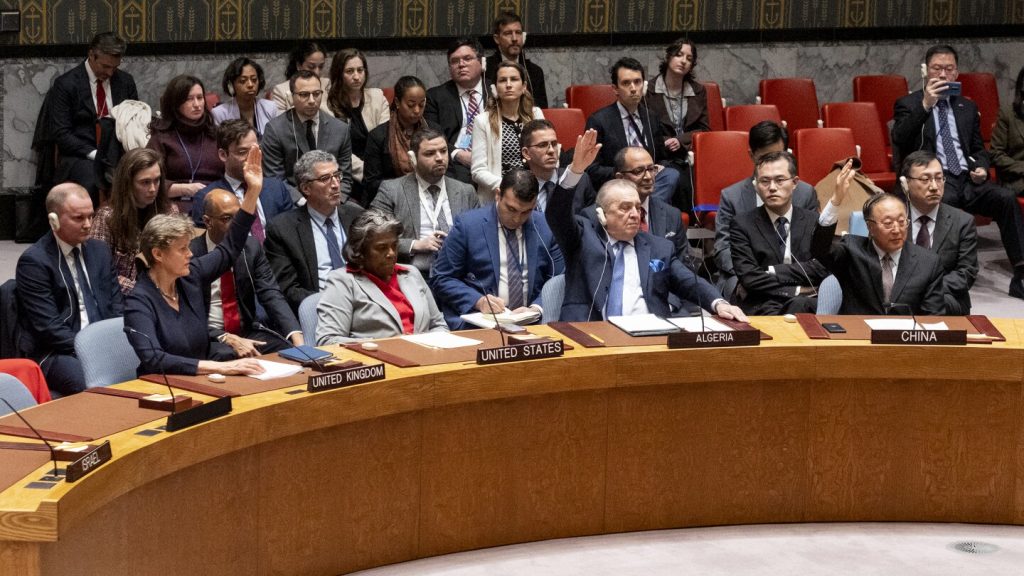The United Nations Security Council issued its first demand for a cease-fire in Gaza, with the U.S. abstaining from the vote, sparking anger from Israel. Prime Minister Benjamin Netanyahu accused the U.S. of retreating from a principled position by allowing the vote to pass without conditioning the cease-fire on the release of hostages held by Hamas. The resolution, approved 14-0, demanded the release of hostages but did not make it a condition for the cease-fire for the month of Ramadan, which ends in April. Hamas welcomed the U.N.’s move but said the cease-fire needs to be permanent.
The U.S. decision to abstain reflects growing tensions between President Joe Biden’s administration and Netanyahu over Israel’s prosecution of the war, civilian casualties, and limited humanitarian assistance reaching Gaza. The two countries have also clashed over the rejection of a Palestinian state, settler violence in the West Bank, and settlement expansion. The well-known antagonism between Netanyahu and Biden was further exacerbated after Biden questioned Israel’s strategy in combating Hamas. The Israeli delegation’s visit to Washington was canceled following the clash over the U.N. vote.
The vote came after Russia and China vetoed a U.S.-sponsored resolution that would have supported an immediate cease-fire in the Israeli-Hamas conflict. The United States warned that the resolution approved Monday could hurt negotiations to halt hostilities, raising the possibility of another veto. The talks involve the U.S., Egypt, and Qatar, aiming to reach a sustainable cease-fire. The U.S. ambassador to the U.N. emphasized the ongoing diplomatic efforts and urged Hamas to accept the deal on the table.
The Security Council resolution, backed by Russia, China, and the Arab Group, demanded a cease-fire without conditions to end the suffering of the Palestinian people. The resolution dropped the word “permanent” from the demand for a Ramadan cease-fire to lead to a sustainable halt in fighting at the request of the United States. Since the start of the war, the Security Council has adopted two resolutions on the humanitarian situation in Gaza but none calling for a cease-fire. More than 32,000 Palestinians have been killed in Gaza, with dire humanitarian consequences and fears of famine.
The United States has previously vetoed resolutions demanding a cease-fire in Gaza, sparking criticism for not taking a tougher stance against Israel. The U.S. was involved in several vetoed resolutions, including one in February and another in October, reflecting global calls for a cease-fire. Tensions between world powers, particularly the U.S., Israel, Russia, and China, have been high as they navigate the complex dynamics of the conflict. The ongoing diplomatic efforts seek to end the bloodshed and resolve the crisis in Gaza.
The U.S. abstention in the Security Council vote signals a shift in American policy regarding the Israeli-Palestinian conflict, with the Biden administration facing pressure to address the violence and humanitarian crisis in Gaza. The resolution’s passage and the call for a cease-fire mark a significant development in international efforts to bring an end to the conflict and protect civilians in the region. The coming days will be crucial in determining the response of all parties involved and the prospects for a lasting peace in Gaza.


